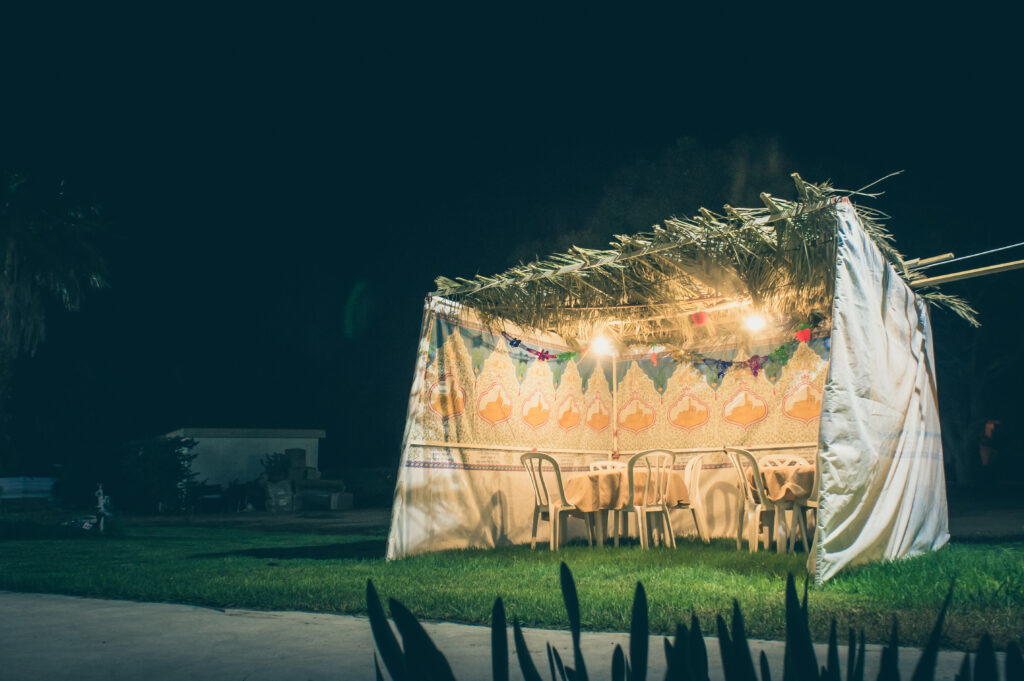
Feast of Tabernacles

Introduction: Have you ever heard of “Sukkot”? The word means booth or tabernacle. It is the word that describes the seventh Jewish Feast (time out) found in Leviticus 23.
“33And the LORD spake unto Moses, saying, 34Speak unto the children of Israel, saying, The fifteenth day of this seventh month shall be the feast of tabernacles for seven days unto the LORD. 35On the first day shall be an holy convocation: ye shall do no servile work therein. 36Seven days ye shall offer an offering made by fire unto the LORD: on the eighth day shall be an holy convocation unto you; and ye shall offer an offering made by fire unto the LORD: it is a solemn assembly; and ye shall do no servile work therein.” (Lev 23:33-36)
1. What was the Feasts of Tabernacles?
“Also in the fifteenth day of the seventh month, when ye have gathered in the fruit of the land, ye shall keep a feast unto the LORD seven days: on the first day shall be a sabbath, and on the eighth day shall be a sabbath. 40And ye shall take you on the first day the boughs of goodly trees, branches of palm trees, and the boughs of thick trees, and willows of the brook; and ye shall rejoice before the LORD your God seven days. 41And ye shall keep it a feast unto the LORD seven days in the year. It shall be a statute for ever in your generations: ye shall celebrate it in the seventh month. 42Ye shall dwell in booths seven days; all that are Israelites born shall dwell in booths: 43That your generations may know that I made the children of Israel to dwell in booths, when I brought them out of the land of Egypt: I am the LORD your God. 44And Moses declared unto the children of Israel the feasts of the LORD.” (Lev 23:39-44)
2. How is it practiced today?
“It shall be a statute for ever in your generations:” (Lev 23:41)
3. What implications does it have in comparison with the other fall feasts in relation to Bible Prophecy?
“And it shall come to pass, that every one that is left of all the nations which came against Jerusalem shall even go up from year to year to worship the King, the LORD of hosts, and to keep the feast of tabernacles. 17And it shall be, that whoso will not come up of all the families of the earth unto Jerusalem to worship the King, the LORD of hosts, even upon them shall be no rain. 18And if the family of Egypt go not up, and come not, that have no rain; there shall be the plague, wherewith the LORD will smite the heathen that come not up to keep the feast of tabernacles.” (Zech 14:16-18)
- Return of Jesus Christ (Zech 14:4)
- Remnant of Jews (Zech 14:5,6)
- Rivers of water (Zech 14:7-8)
- Reverence to the King (Zech 14:9)
- Renewed Jerusalem (Zech 14:10)
- Rain given or withheld (Zech 14:14)
- Remembering the Feast of Tabernacles (Zech 14:19)
Conclusion: The Feasts of Tabernacles has an amazing significance in the past, present, and future. We will celebrate this Feast during the 1,000 year reign of Christ. It may be here sooner than you expect.
